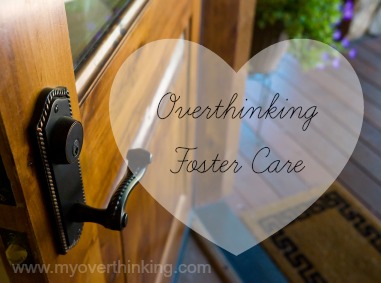So, not that everyone has been waiting on the edge of their seats or anything…
but it’s about time I got these few points out there to maybe benefit someone else.
Also, I would like to go ahead and mention, that I know there are some really hard things that go with older child adoption and by no means am I demeaning those experiences. Nor do I believe that these few things that I feel like have been important learning experiences for me even come close to touching all the issues that can/do arise in these situations.
Whew. I feel better now that I have that off my chest.
Now.
I think the biggest thing I was unprepared for in this whole experience was how delays in maturity really effect you in the everyday and how to be prepared to handle these things.
I like to call this first point:
CROWD CONTROL.
The good news about handling crowd control is that all you really need is a good sense of humor and perspective. That doesn’t sound too bad eh? Well, it’s not too bad if your thinking about it.
The tough part is we sometimes forget things as parents and overreact at times. Do I sound like I am speaking from experience???
Umm, yes.
So, this is something I have had to remind myself about on a regular basis this first year and probably about 1-2 years more for all I know.
Crowd control is understanding that there is a difference between knowing that your child is about 2 years younger on the inside because of what they have been through and seeing that play out every where you go.
Because when a 2 to 4 year old says, “Hey, Mom! Look at that fat man.” It is embarrassing, but everyone understands; that little kid doesn’t have a filter yet, he’ll learn.
But when a 6 or 7 year old says things like that…you start having some ‘splainin’ to do.
When a 2 to 4 year old says, “Hey, when you two get married are you going to take your clothes off and get in the bed?” most people laugh and snicker. They’re not assuming the worst, but understanding that most likely that child was just speaking in a literal sense from what he has seen his parents do.
Ah, but when your 7 year old says it…it’s a little different. It’s harder for others to see the lack of the maturity that I know exists, that his world is being redefined, that he is learning new things culturally and societally. And quite frankly, I can’t put out a psa to every kid’s parent in his classes or everyone in my church. I have had to put out a few fires in this first year.
This is why I call it crowd control.
I have come to learn in these situations that sometimes I need to make sure I am patient with my son because he is just learning, with others because they can’t be expected to always know or understand, to not overreact myself and fear the worse, and especially pepper the situation with a little sense of humor.
Now, I am not saying that sometimes there couldn’t be other underlying issues or that everything can be laughed off. But a good bit of it in our situation can, and I need to remember that.
Another underlying point with crowd control is me getting over myself and this perfect family image thing. Which honestly, didn’t we abandon that already a long time ago? Go figure.
My second point, which kind of follows along with point one is:
REDEFINING LIFE WITH A FAMILY CIRCLE.
What is family?
What is a mom and dad, really?
It is a word, a title they are familiar with.
It has begun to occur to me that the actual concept of that and all it entails will take him some time to truly understand. And we have to define what that means for him.
In his mind, he had created an image of what he thinks a family is or does, but the reality of what a family truly is and means is very different from that.
I mean, in his foster family he called his foster parents mom and dad, and at the orphanage everyone is big brother, big sister, aunt, etc.
So many people have taken care of me.
So why wouldn’t everyone we meet at church be my big brother and sister. Why can’t I cuddle with every person I meet. Don’t they all love me, know my name, readily want to hug me?
I had to fight for attention in the orphanage. I would get it from doing things like this. Shouldn’t it be the same? I need attention. That is how you succeed.
Maybe this stuff is obvious. Maybe I even read it. Seeing it come to reality is different.
I began to understand first hand how a mom and dad (and siblings too) become the center of a baby’s universe. They are the nucleus from which their world revolves. For my son, maybe it was his nanny’s or crib. Which isn’t exactly a central point, especially since that changed when he was three. From three till 6 it was his foster family, and he recognized them as mom and dad.
I am sure they probably tried to clarify they were just fostering, but he wasn’t at an age I think to truly grasp that. Most of the time I marvel at the reality he has created in his precious mind. I know it will take time to redefine that.
At the moment, we have a lot of conversations about the fact that we are his forever. He talks about not staying here forever, that he can’t. Not in a spiteful way, just matter-of-factly. So in the kindest loving way possible, I explain to him that while we may take him back to visit, China/the orphanage is no longer his home unless he decides to leave when he is older. I try to tell him that his foster parents were just helping him while he waited, that they couldn’t be his family forever. They weren’t allowed. I try to explain that we could visit the orphanage or try to work there one day, but that they couldn’t take him back if he wanted to go and we would never leave him even so.
I wonder how long it will take him to see these concepts; how long it will take for him to understand that life will never change as far as us being his family is concerned.
Some of the ways we reinforce this is by spending quality time together, which I would consider an obvious solution. But there are other things we have been led to do as well, such as:
—Remind him that there are things we discuss with family that we don’t discuss outside of our family unit. And when he asks why, it gives me a great opportunity to reinforce the nucleus of family.
—Remind him that physical affection is saved for mom and dad.
—To try to explain what strangers are and how and when to let someone in to become acquaintances and then friends.
—That all attention is not good attention.
—That though others care about you that doesn’t necessarily mean that they love you or want to be your family. You can’t just pick any Joe from down the road because they seem better and they’re kinda nice to you.
My last and probably the most surprising for me was:
WHEN PEOPLE DON’T LIKE THEM
Ok, maybe this should have been obvious. And I know this is an issue that my biological children could have, but none the less it didn’t occur to me.
So much love had grown in my heart for this kid I had never met, just like for Lily. And you assume it does for others too. But she was a cute little 2 year old girl and he was a big 6 year old boy. I just didn’t allow myself to realize that all the things that come with that aren’t as cute to others or as easy to get over.
News flash: things that he does aren’t nearly as endearing as when a little 2 year old girl does them, or even a little boy for that matter. Not even close.
Which, some of that is boy, I guess. And I am not going to lie, all of us have had some adjustments to make getting used to this in our previous estrogen-filled life.
But I just wasn’t prepared for how hard it would be for him to make friends. I wasn’t prepared for the fact that kids in our circles of life wouldn’t like him, that he would be picked on, called “weird”, and get hit. That even adults would have a hard time “liking” him.
What got me was that it wasn’t about prejudice because he was Chinese.
I had been prepared for that.
It wasn’t because he has a special need.
I had been prepared for that.
It was because he is mentally, socially delayed.
It was because he acts…different.
I wasn’t prepared for that.
I will admit this is where I have struggled the most. I want him to be accepted and make friends. I want him to have buddies. We try to help him learn what people like and don’t like. We teach him how to read social clues. While also trying to teach him when/how to stand up for himself and balance that with forgiveness, kindness and love. Which again, is not totally different than when parenting biological children, or with parenting boys, or with parenting children with special needs. But, I just wasn’t prepared for it.
I really thought he would make friends easily and that people would understand. I was more focused on him being willing to let his guard down to make friends instead of realizing that it would also be difficult for others to accept him and understand his needs.
I should have realized that this would be a challenge for others as much as it was a challenge for us. There were many times my own daughters had a difficult time understanding his actions, and I had to take time to help them see things with the proper perspective. I just didn’t have a good enough game plan in this area, or heart prep, or something.
There is so much more than just these three things, but I think these are the three things that have struck me the most. Maybe I knew, but never understood or maybe I underestimated??
People ask me know about our experience adopting an older child and these are the responses that I feel like I would have wanted someone to talk to me about more before hand. It is one thing to read it in a book. A total new one to handle in real life.
I have learned to really listen to the Holy Spirit. I don’t have all the answers or know how to handle every situation. Even having read the books, each situation is sometimes so unique and people are staring at you for answers…in those moments I need help.
However, I wouldn’t change a thing about what we have done. We have beaten some pretty negative odds out there too, I suppose; adopted an older child into a large family, out of birth order, the first of his sex in our family. In many ways though, this adoption has been easier than Lily’s was. However, more difficult on his side for the things he lost. Which I know he still mourns in his own way. Though, you would never know it to look at him. He covers it up in his silly, attention getting ways.
Anyway, this is kinda long and if you made it this far you really wanted to know my thoughts on this. So there ya go, some of my thoughts on older child adoption. It’s beautiful and fun and I would do it all over again. The good has far outweighed the hard and he has brought a lot of joy to a lot of people. He is one cool dude and our family has been changed for the better!

____________________________________
 Anna Lokey and her husband Shaun have four girls (one from China) and FINALLY a boy (also from China). She’s a normal mom, living a life for God, raising a family that does the same, homeschooling, and trying to keep up with everyone’s schedules. She says, “If I can get my kids to school and gymnastics on time and then fix a real meal for dinner, it’s been a good day!” You can read more about them and their anything but LoKEY life on her blog www.anythingbutlokey.com.
Anna Lokey and her husband Shaun have four girls (one from China) and FINALLY a boy (also from China). She’s a normal mom, living a life for God, raising a family that does the same, homeschooling, and trying to keep up with everyone’s schedules. She says, “If I can get my kids to school and gymnastics on time and then fix a real meal for dinner, it’s been a good day!” You can read more about them and their anything but LoKEY life on her blog www.anythingbutlokey.com.
 Eloquent argument #1: It is a lot of work. There’s paperwork and training and meetings and appointments just to get permission to foster in the first place. After you have a child in your home, those meetings and appointments won’t end. Then, add in the normal care-for-a-child stuff inherent to caring for a child. That’s a lot of work for a child who isn’t your own. Wouldn’t it be so much easier to just avoid it altogether?
Eloquent argument #1: It is a lot of work. There’s paperwork and training and meetings and appointments just to get permission to foster in the first place. After you have a child in your home, those meetings and appointments won’t end. Then, add in the normal care-for-a-child stuff inherent to caring for a child. That’s a lot of work for a child who isn’t your own. Wouldn’t it be so much easier to just avoid it altogether?





.jpg)
.jpg)
.jpg)









